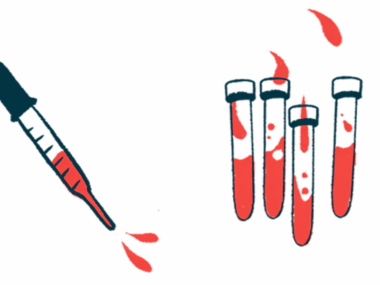In Praise of Community Support, Right After Diagnosis and Beyond
How connections helped us, and how I hope they will help our sons
Written by |

In the early days of a diagnosis, emotions run wild. Anxiety, helplessness, and anger are a few feelings that cloud the mind, and it’s difficult to even begin to understand what lies ahead.
In 1996, my first son, Julian, was born and diagnosed with severe hemophilia A. In an instant, my dreams for my son shattered. How in the world would I know how to help him? Would he live a full life?
Obtaining information in 1996 looked different from how we do it in 2023. One place I depended on was the local bleeding disorder chapter. I can’t remember how I discovered the existence of these chapters, but they were a godsend.
The chapter provided educational materials that my husband and I devoured. One book, “Raising a Child with Hemophilia” by Laureen A. Kelley, quickly became our bible. It helped us understand the challenges to come and ushered in a period of information overload.
Some information is needed immediately, such as how to identify a bleed. Some terms are difficult to understand and may not be applicable at the moment. For example, the terms “comprehensive care,” “inhibitors,” “Bethesda units,” and “plasma-derived versus recombinant factor” were a few that didn’t make sense to me early in the diagnosis.
Trudging through the beginning of our experience with hemophilia was painful and lonely. While hemophilia treatment centers (HTC) are a phenomenal resource, it was the local chapter support groups that helped me deal with my understanding of the condition.
As a parent with a confident expectation of what life would look like for her child, I found it sometimes traumatic to come to terms with losing that vision. I’m incredibly grateful for the Lone Star Bleeding Disorders Foundation. Their support and expertise were what I needed.
I’m also grateful that groups available to patients and caregivers are offered virtually from all parts of the country. Groups for patients under 18, however, aren’t easily found, and that’s a problem.
My youngest son, Caeleb, is 17 and desperately needs connection. The pandemic kept him from attending summer camp, where he connected with friends living with hemophilia. While our local chapter is reorganizing, events for Caeleb to connect with others aren’t easily accessible.
But at his last HTC visit, our prayer was answered.
The HTC is beginning a Saturday connection group for patients and families that will run through the spring. I’m not sure what to expect, but Caeleb is excited to attend. I’m thrilled that my son is looking forward to this group.
My husband and I are active members of the bleeding disorder community, yet my sons aren’t as involved. As a parent, I find that pushing my kids to do things is tricky. As much as I believe in the power of community, my sons need to discover this independently.
I’m grateful that Caeleb is expressing interest in his community. I hope he finds a connection to the bleeding disorder community and relationships that become meaningful, like family. Without these relationships, I don’t know what I would’ve done over the past 26 years since Julian’s diagnosis.
While the diagnosis of a rare disorder can be frightening, I know that reaching out to people for help is also scary. Therefore, I encourage newly diagnosed families to make a phone call to their local chapter. Tell them you are newly diagnosed and would like a phone call.
That’s where the connection begins.
Note: Hemophilia News Today is strictly a news and information website about the disease. It does not provide medical advice, diagnosis, or treatment. This content is not intended to be a substitute for professional medical advice, diagnosis, or treatment. Always seek the advice of your physician or another qualified health provider with any questions you may have regarding a medical condition. Never disregard professional medical advice or delay in seeking it because of something you have read on this website. The opinions expressed in this column are not those of Hemophilia News Today or its parent company, Bionews, and are intended to spark discussion about issues pertaining to hemophilia.




Leave a comment
Fill in the required fields to post. Your email address will not be published.